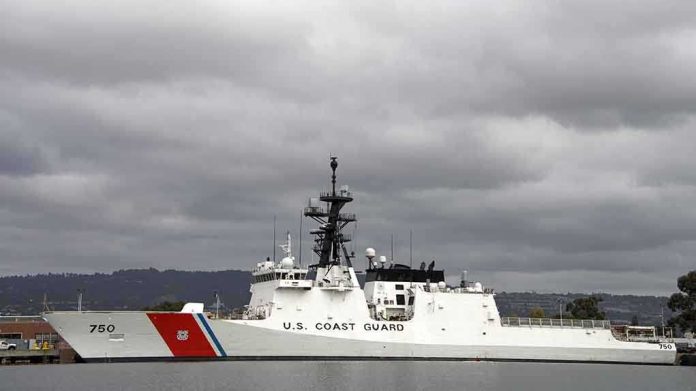
President Trump has nominated Admiral Kevin Lunday, a recognized cyber operations expert, to lead the U.S. Coast Guard—marking the first time cybersecurity expertise has been the defining qualification for the service’s top position.
Story Highlights
- Admiral Kevin Lunday becomes first cyber expert nominated as Coast Guard Commandant
- Nomination part of Force Design 2028 initiative to modernize and streamline Coast Guard operations
- 25% reduction in flag officer positions signals major leadership overhaul under Trump administration
- Strategic shift addresses growing cyber threats to U.S. maritime infrastructure and operations
Historic Cyber-Focused Leadership Selection
President Trump’s nomination of Admiral Kevin Lunday represents a watershed moment for Coast Guard leadership priorities. Unlike previous commandants selected primarily for operational or maritime law enforcement backgrounds, Lunday’s cyber operations expertise defines his candidacy. Secretary of Homeland Security Kristi Noem announced the nomination during the Coast Guard Academy’s 2025 commencement ceremony, emphasizing the administration’s commitment to digital transformation. This strategic pivot acknowledges escalating cyber threats targeting U.S. maritime infrastructure and critical coastal operations.
Force Design 2028 Drives Organizational Overhaul
The nomination coincides with the administration’s ambitious Force Design 2028 initiative, designed to modernize Coast Guard structure and eliminate bureaucratic inefficiencies. Secretary Noem has ordered a dramatic 25% reduction in flag officer positions by next year, consolidating command authority and streamlining decision-making processes. The reorganization includes disapproval of the 2025 rear admiral promotion board, signaling unprecedented leadership realignment. This bold restructuring demonstrates Trump’s commitment to eliminating wasteful government overhead while enhancing operational effectiveness.
Strategic Response to Maritime Cyber Threats
Lunday’s selection directly addresses the growing vulnerability of American maritime operations to sophisticated cyber attacks. U.S. ports, shipping networks, and coastal infrastructure face increasing digital threats from foreign adversaries seeking to disrupt American commerce and national security. The Coast Guard’s traditional focus on physical maritime safety and law enforcement must now integrate comprehensive cyber defense capabilities. This evolution reflects the administration’s recognition that America’s maritime domain requires protection in both physical and digital realms to maintain economic and security interests.
Leadership Transformation Emphasizes Efficiency
The comprehensive leadership overhaul extends beyond Lunday’s nomination to include strategic repositioning of senior officers across key roles. Admiral Thomas Allan, Vice Admiral Nathan Moore, and other flag officers receive new assignments aligned with Force Design 2028 objectives. This systematic approach eliminates redundant positions while ensuring qualified leaders occupy critical posts. The administration’s emphasis on merit-based appointments over traditional bureaucratic advancement represents a return to common-sense governance that prioritizes results over institutional inertia, delivering taxpayer value through streamlined operations.
Sources:
American Waterways Operators Newsletter – Coast Guard Leadership Changes
Air & Space Forces Magazine – Trump Nominates Cyber Expert for Coast Guard Commandant
U.S. Coast Guard News – Secretary Noem Announces Force Design 2028











